
More Specials is the second album by English ska band the Specials, released by 2 Tone Records in September 1980. After the success of the band's debut album, band member Jerry Dammers assumed the role as the band's leader and stirred them into expanding their 2 Tone sound into other genres of music, most prominently a lounge music and easy listening style inspired by Muzak. Several band members disagreed with Dammers' vision and brought their own influences to the album, including from northern soul and rockabilly, contributing to an eclectic sound palette. The relations between band members continued to sour into the album's accompanying tour and most of the band departed in 1981.
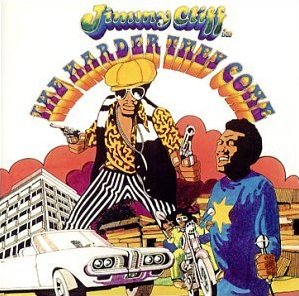
The Harder They Come is the soundtrack album to the film of the same name, released in 1972 in the United Kingdom as Island Records ILPS 9202. It was issued in February 1973 in North America as Mango Records SMAS-7400. It peaked at No. 140 on the Billboard 200. In 2021, the album was deemed "culturally, historically, or aesthetically significant" by the Library of Congress and selected for preservation in the National Recording Registry.
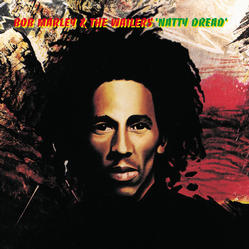
Natty Dread is the seventh album by Bob Marley and the Wailers, released in 1974. Previously Marley had recorded with Peter Tosh and Bunny Wailer as the Wailers, and this was his first record without them.

Catch a Fire is the fifth studio album by the reggae band The Wailers, released in April 1973. It was their first album released by Island Records. After finishing a UK tour with Johnny Nash, they had started laying down tracks for JAD Records when a disputed CBS contract with Danny Sims created tensions. The band did not have enough money to return to Jamaica, so their road manager Brent Clarke approached producer Chris Blackwell, who agreed to advance The Wailers money for an album. They instead used this money to pay their fares back home, where they completed the recordings that constitute Catch a Fire. The album has nine songs, two of which were written and composed by Peter Tosh; the remaining seven were by Bob Marley. While Bunny Wailer is not credited as a writer, the group's writing style was a collective process. For the immediate follow-up album, Burnin', also released in 1973, he contributed four songs. After Marley returned with the tapes to London, Blackwell reworked the tracks at Island Studios, with contributions by Muscle Shoals session musician Wayne Perkins, who played guitar on three overdubbed tracks. The album had a limited original release under the name The Wailers in a sleeve depicting a Zippo lighter, designed by graphic artists Rod Dyer and Bob Weiner; subsequent releases had an alternative cover designed by John Bonis, featuring an Esther Anderson portrait of Marley smoking a "spliff", and crediting the band as Bob Marley and the Wailers.

Reggatta de Blanc is the second studio album by British rock band the Police, released on 5 October 1979 by A&M Records. It was the band's first release to top the UK Albums Chart and features their first two UK number-one singles: "Message in a Bottle" and "Walking on the Moon". In early 1980, the album was reissued in the United States on two 10-inch discs, one album side per disc, and as a collector's edition with a poster of the band.

Beats International were a British dance music band and hip-hop collective, formed in the late 1980s by Norman Cook based in Brighton, East Sussex, England, after his departure from the Housemartins.

I Just Can't Stop It is the debut studio album by British ska band the Beat, released on 23 May 1980 by Go-Feet Records in the United Kingdom. It was released the same year in the United States on Sire Records under the band name The English Beat". In Australia, it was released on Go-Feet under the band name The British Beat.
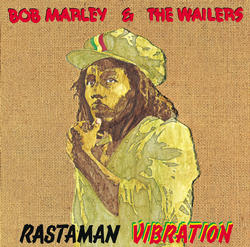
Rastaman Vibration is the eighth studio album by Jamaican reggae band Bob Marley and the Wailers, released in April 1976.
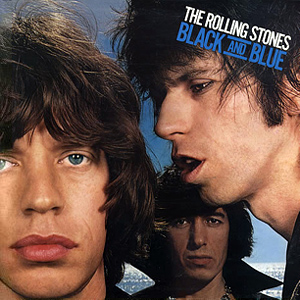
Black and Blue is the thirteenth studio album by the English rock band the Rolling Stones, released on 23 April 1976 by Rolling Stones Records.

Eat to the Beat is the fourth studio album by American rock band Blondie, released on September 28, 1979, by Chrysalis Records. The album was certified Platinum in the United States, where it spent a year on the Billboard 200. Peaking at No. 17, it was one of Billboard's top 10 albums of 1980. It also reached No. 1 on the UK Albums Chart in October 1979 and has been certified Platinum by the British Phonographic Industry (BPI) and the Recording Industry Association of America (RIAA).
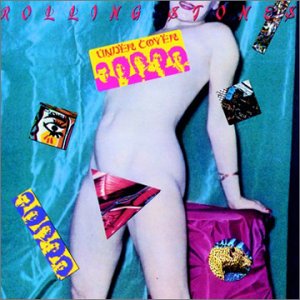
Undercover is the seventeenth studio album by English rock band the Rolling Stones, released on 7 November 1983 by Rolling Stones Records. The band would move the label to Columbia Records for its follow-up, 1986's Dirty Work.
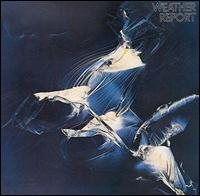
Weather Report is the debut studio album by American jazz fusion band Weather Report, released on May 12, 1971, by Columbia Records. The album was reissued by Sony and digitally remastered by Vic Anesini in November 1991 at Sony Music Studios in New York City.
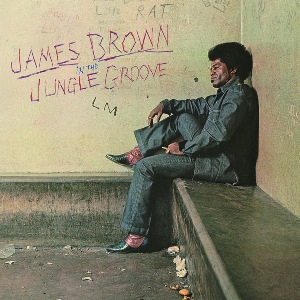
In the Jungle Groove is a compilation album by American funk musician James Brown, released in August 1986 by Polydor Records.

Labour of Love is the fourth studio album by British reggae band UB40, and their first album of cover versions. Released in the UK on 12 September 1983, the album is best known for containing the song "Red Red Wine", a worldwide number-one single, but it also includes three further UK top 20 hits, "Please Don't Make Me Cry", "Many Rivers to Cross" and "Cherry Oh Baby". The album reached number one in the UK, New Zealand and the Netherlands and the top five in Canada, but only reached number 39 in the US on its original release, before re-entering the Billboard 200 in 1988 and peaking at number 14 as a result of "Red Red Wine"'s delayed success in the US.

Hysteria is the fourth studio album by the English synth-pop band the Human League, released on 7 May 1984 by Virgin Records. Following the worldwide success of their previous studio album Dare (1981), the band struggled to make a successful follow-up and the sessions for Hysteria were fraught with problems. The album title itself is taken from the problematic recording period. Producers Martin Rushent and Chris Thomas both left the project which would eventually be finished by producer Hugh Padgham.
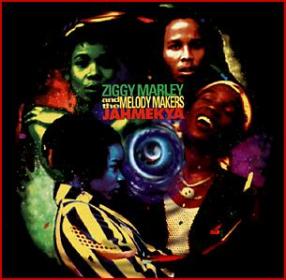
Jahmekya is a studio album by the reggae group Ziggy Marley and the Melody Makers, released in 1991.

Wha'ppen? is the second studio album by British ska band the Beat, released in 1981 via Go-Feet Records in the United Kingdom and Sire Records in the United States. After the critical and commercial success of I Just Can't Stop It (1980), which mixed ska, reggae and punk rock with social lyrics, the band changed direction on Wha'ppen?, taking influence from many other musical styles which were intriguing the band, including African, steel band and dub music, while keeping reggae at its core. The fast pace of the band's previous work is also exchanged for a slower, mid-tempo pace. Accompanying the music is the socially conscious and political lyrics. The band recorded the record at Roundhouse Studios with producer Bob Sargeant.

Right Time is the 1976 studio album debut of influential reggae band the Mighty Diamonds. The album, released by Virgin Records after they signed the Mighty Diamonds following a search for talent in Jamaica, is critically regarded as a reggae classic, a landmark in the roots reggae subgenre. Several of the album's socially conscious songs were hits in the band's native Jamaica, with a few becoming successful in the UK underground. Influential and sometimes unconventional, the album helped secure the success of recording studio Channel One Studios, and rhythm team Sly Dunbar and Robbie Shakespeare.

Rhythm Killers is an album by Jamaican musical duo Sly and Robbie, released in May 1987 by Island Records. By the time of the album's recording, Sly and Robbie had transitioned away from their prolific work in the reggae genre. They spent the 1980s experimenting with electronic sounds and contemporary recording technology on international, cross-genre endeavors, which influenced their direction for Rhythm Killers.
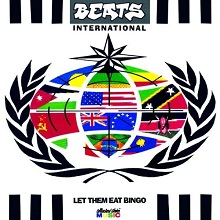
Let Them Eat Bingo is the debut album by British electronic project Beats International, released in spring 1990 on Go! Beat in the United Kingdom and Elektra in the United States. The project was founded and led by disc jockey and former Housemartins bassist Norman Cook, who produced the album alone and intended Beats International to be a collective of permanent and temporary members including singers and other performers. Cook is joined on the album by a host of contributors, including Lindy Layton, Billy Bragg, Double Trouble, and Captain Sensible.




















